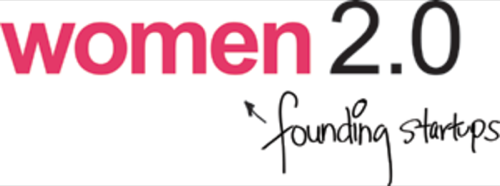A story last week in the San Jose Mercury News highlights, as the title suggests, “the dearth of women in tech.” The article begins with a description of InDinero founder and Y Combinator alum Jessica Mah: “I just wasn’t sure if Jessica Mah was for real,” writes Scott Duke Harris, admitting that he probably wouldn’t have had this impression if Jessica were Jesse. He admits it’s a sort of “gender profiling” – the expectation that girls can’t (or are less apt, perhaps) to found tech companies.

The article points to the small number of women who’ve participated in Y Combinator’s program over the years – only 14 out of 450 have been women. “It’s tempting to think the Y in Y Combinator has something to do with the Y chromosome,” writes Harris. Debates about a chromosomal aptitude for math and logic aside, there are undoubtedly many cultural pressures and expectations that seem to steer girls and women away from pursuing technology careers.
The Case for an XX Combinator
And the obstacles that stand in the way of women entrepreneurs, particularly those that don’t seem to fit into the Y Combinator model, prompted Tereza Nemessanyi to ask, first in comments on Fred Wilson‘s blog then in a longer post on her own, as to whether there was a need for an XX Combinator.
“To start,” she writes, “Y Combinator is seeking founders who code. And in today’s tech innovation model, the founders have to. Problem is, very, very few women in the U.S. can code.” Furthermore, “Y Combinator participants are for the most part very young — in their early 20’s. This is not when women would be most inclined. Women who start businesses like to know what they’re doing, and be trained and experienced in it. That takes up our 20’s. We have kids in our 30’s. Our entrepreneurial sweet spot is around age 40.” Prestigious incubator programs like Y Combinator also demand participants relocate, something that isn’t always possible for founders (men or women) with families.
While Y Combinator and other programs have been enormously successful in supporting innovative tech startups, it’s not a model that “works” for everyone.
Women 2.0 Labs
Recognizing the importance of incubator and accelerator programs that support women entrepreneurs, Women 2.0 Labs is a pre-incubator for men and women. The mission of Women 2.0 “is to increase the number of female founders of technology startups, by enabling entrepreneurs with a network, resources and knowledge to take your startup from an idea to launch.”

Women 2.0 Labs is a five-week program – “five engineers, five more engineers, five designers, five business mavens, five teams, five weeks, five days a week, five product releases, five minimal viable products released.” The teams are formed organically at the start of the program, and by its end are hopefully in the position to apply to an incubator program or be ready to launch. The program takes place in the evenings and on weekends, so that participants can keep their “day jobs.” Visiting advisors have included Steve Blank, Eric Ries, Dave McClure, Ann Muira-Koo, Mari Baker, and Theresia Gouw-Ranzetta.
A key benefit from the program is the establishment of “founder history” created in the teams as they work together intensely over the course of the program. Women 2.0 Labs also provides participants a first taste of truly creating something from an idea to a basic prototype. As Labs participant Rebecca Woodcock says of her involvement, “The idea has been formulating for a while, but my lack of technical expertise has stifled me from pursuing product development.” The Labs program has helped her form a team to bring her idea to fruition.
Women 2.0 CEO Shaherose Charania says she sees the program as a “way to jump into the deep end of being a founder while still wearing a lifejacket (keeping your job). By the end of the program I expect individuals and teams to be able to rip off the life jacket and keep swimming into the deep end (quitting their job to work on the startup they started in the program).”
While Women 2.0 Labs does provide great mentorship and skill-building opportunities for women entrepreneurs, it doesn’t address all of the issues raised by Tereza Nemessanyi. It requires relocation to the Bay Area, for example.
But the questions raised by her call for an XX Combinator, alongside the work of Women 2.0, Astia and other programs, point to some of the efforts to help support more women entrepreneurs. As a recent Kauffman Foundation study found, providing support and mentorship is one of the keys to increasing the number of women entrepreneurs.

















